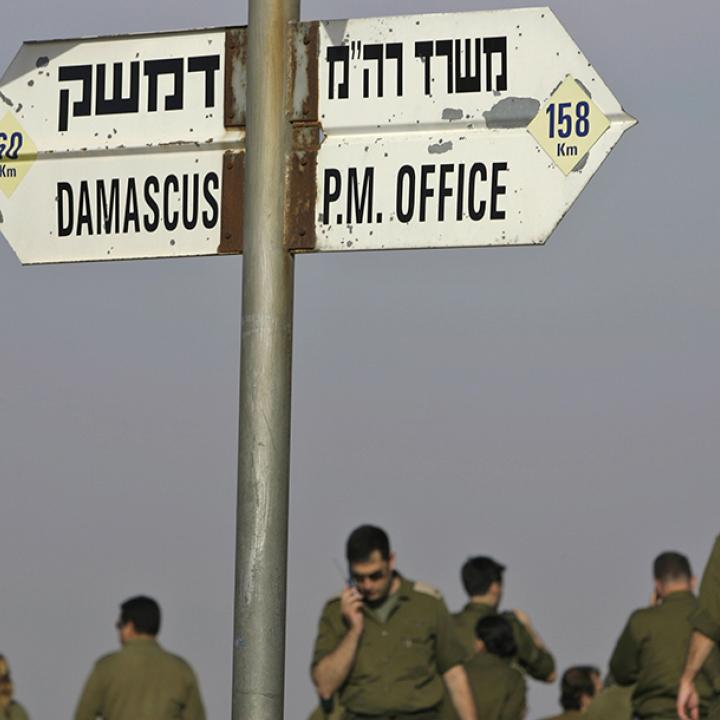
- Policy Analysis
- Articles & Op-Eds
For Israel, a Strategic Win and New Headaches
Also published in Washington Post

Despite the welcome blow to Iran's axis, Israel’s must now protect its border communities in the Golan and ensure that the Assad regime's strategic weapons don't end up in the wrong hands.
The Assad regime’s fall dislodged a vital partner in Tehran’s “axis of resistance,” cutting strategic routes between Iran’s military industries and its proxies on Israel’s borders. Iran will now find it exceedingly difficult to rearm and rebuild Hezbollah. At the same time, the advanced arsenal that used to belong to the Syrian army is up for grabs as the power vacuum is filled by various rebel groups—among them radical Islamist terrorists.
Israel’s strategic challenge in Syria is to protect its border communities in the Golan Heights and prevent emerging threats by Islamist militants, including the Islamic State and Hamas. These goals reflect Israel’s post-Oct. 7, 2023, posture, which focuses on prevention and creating buffer zones.
As early as Sunday, Israel Defense Forces started seizing the “area of separation” in Syria in violation of the 1974 disengagement agreement, warning armed rebels to stay away. They also captured the Syrian outpost on Mount Hermon, a vital high ground that, when in hostile forces’ hands, has historically presented a challenge to the IDF. The IDF justified these steps as improving defense positions after armed rebels were seen advancing into the area.
Hezbollah-allied Lebanese media have claimed that IDF troops are advancing on the outskirts of Damascus. The IDF has denied these reports. Prime Minister Benjamin Netanyahu said he had instructed the IDF to temporarily seize the area of separation, as the disengagement agreement had collapsed.
To prevent future threats, Israel has also been conducting a wide-ranging and intense air campaign across Syria since Monday, striking hundreds of military targets; decimating Syria’s army, air force and navy; and destroying ammunition and arms depots, air defenses, ballistic and anti-ship missiles, and production and development facilities, including for chemical weapons.
Aggressive prevention has not been cost-free. Israel drew regional rebukes against its violation of Syria’s sovereignty. And over time, its presence on Syrian soil might also draw attacks from various Syrian factions.
Beyond this initial phase, Israel will want to reestablish border security arrangements, fully dismantle or destroy all of Syria’s chemical weapons supply and infrastructure while preventing the reemergence of threats from Iran’s proxies or any Islamist factions. It will also want to bolster Jordan’s security and potential Syrian partners, including Kurdish, Druze and moderate Sunni communities. Most of these goals ought to overlap with those of any administration in Washington.
Brig. Gen. Assaf Orion (Res.) is the Rueven International Fellow with The Washington Institute and former head of the IDF Strategic Planning Division. This article was originally published as part of a Washington Post compilation.



